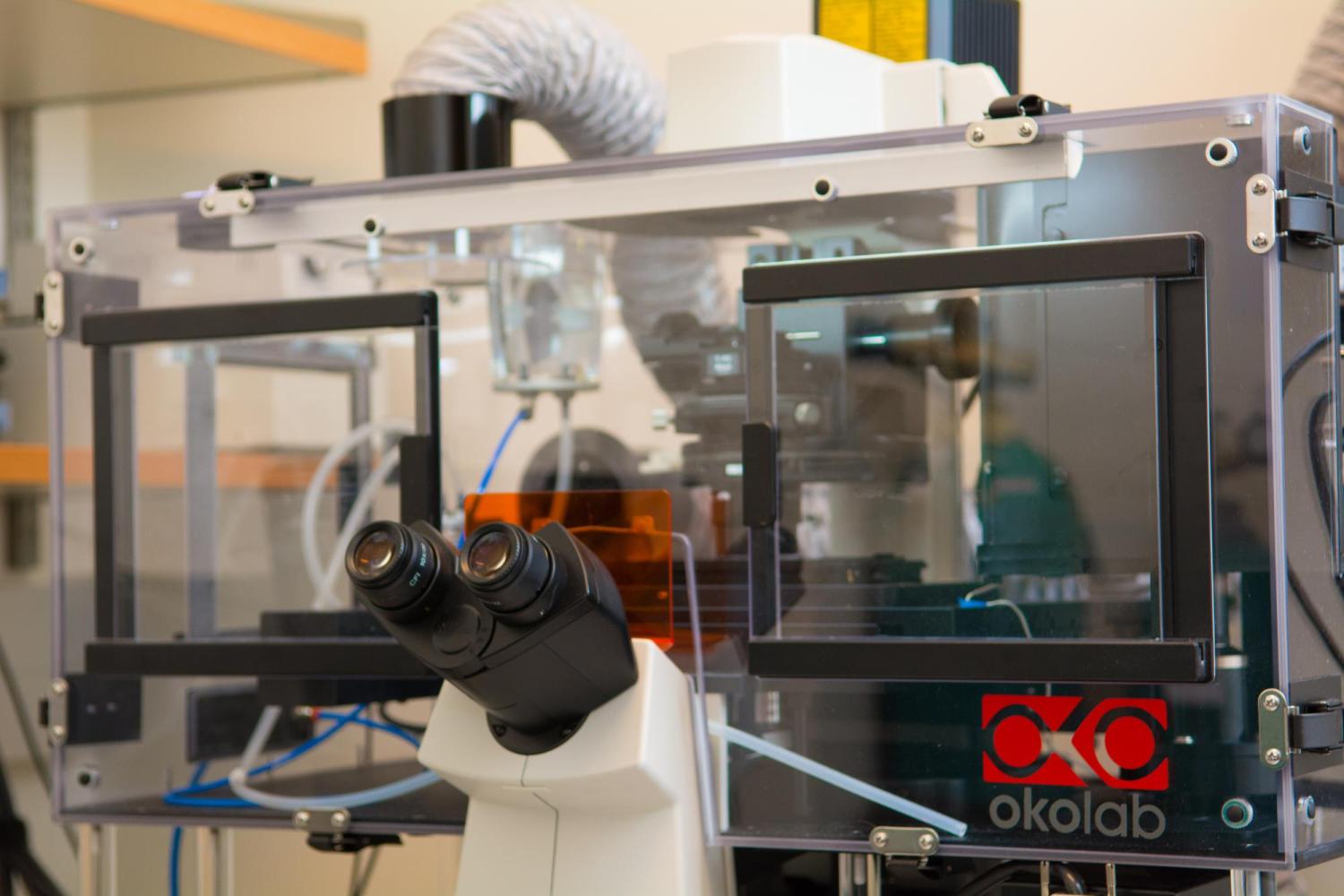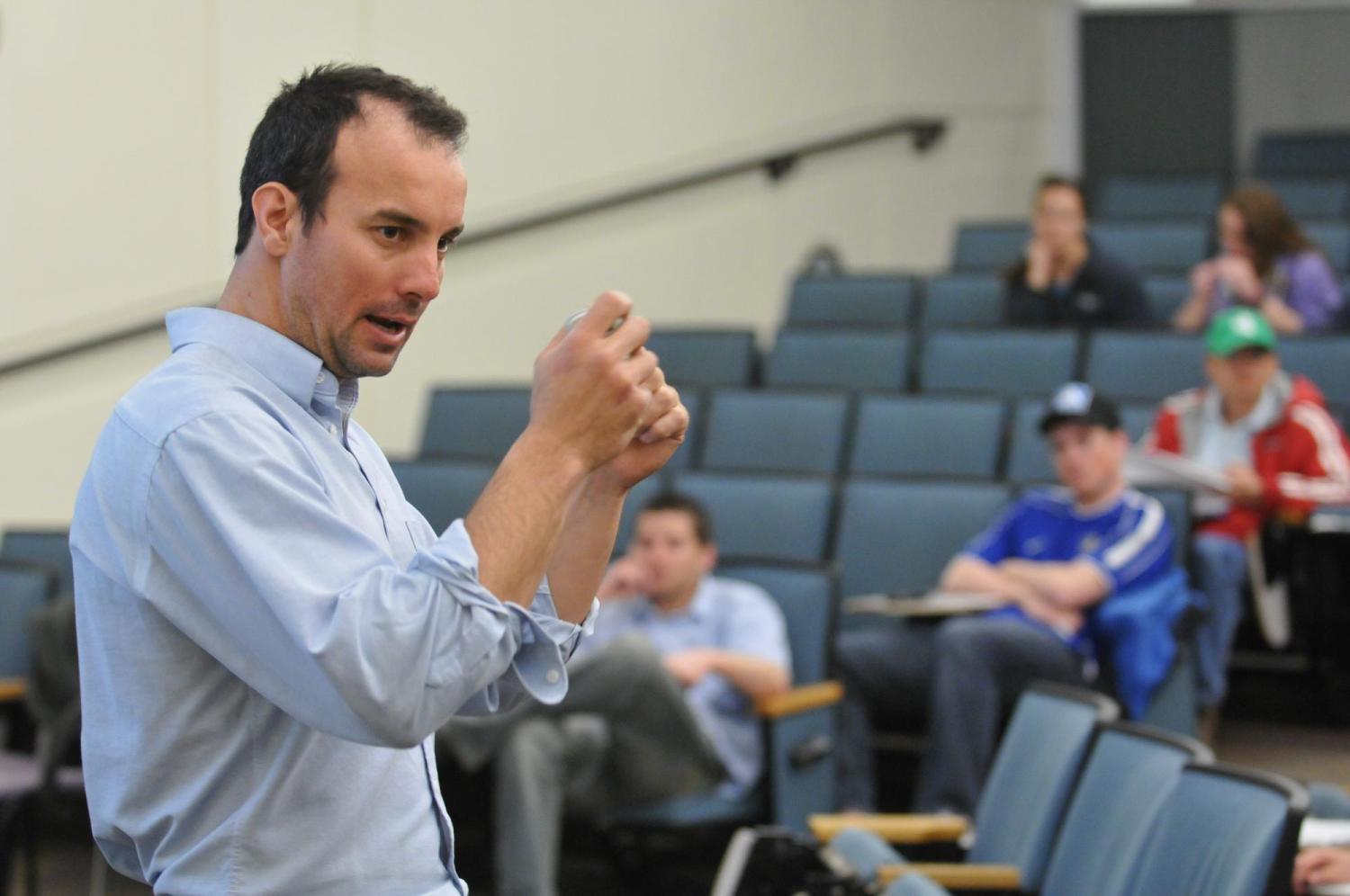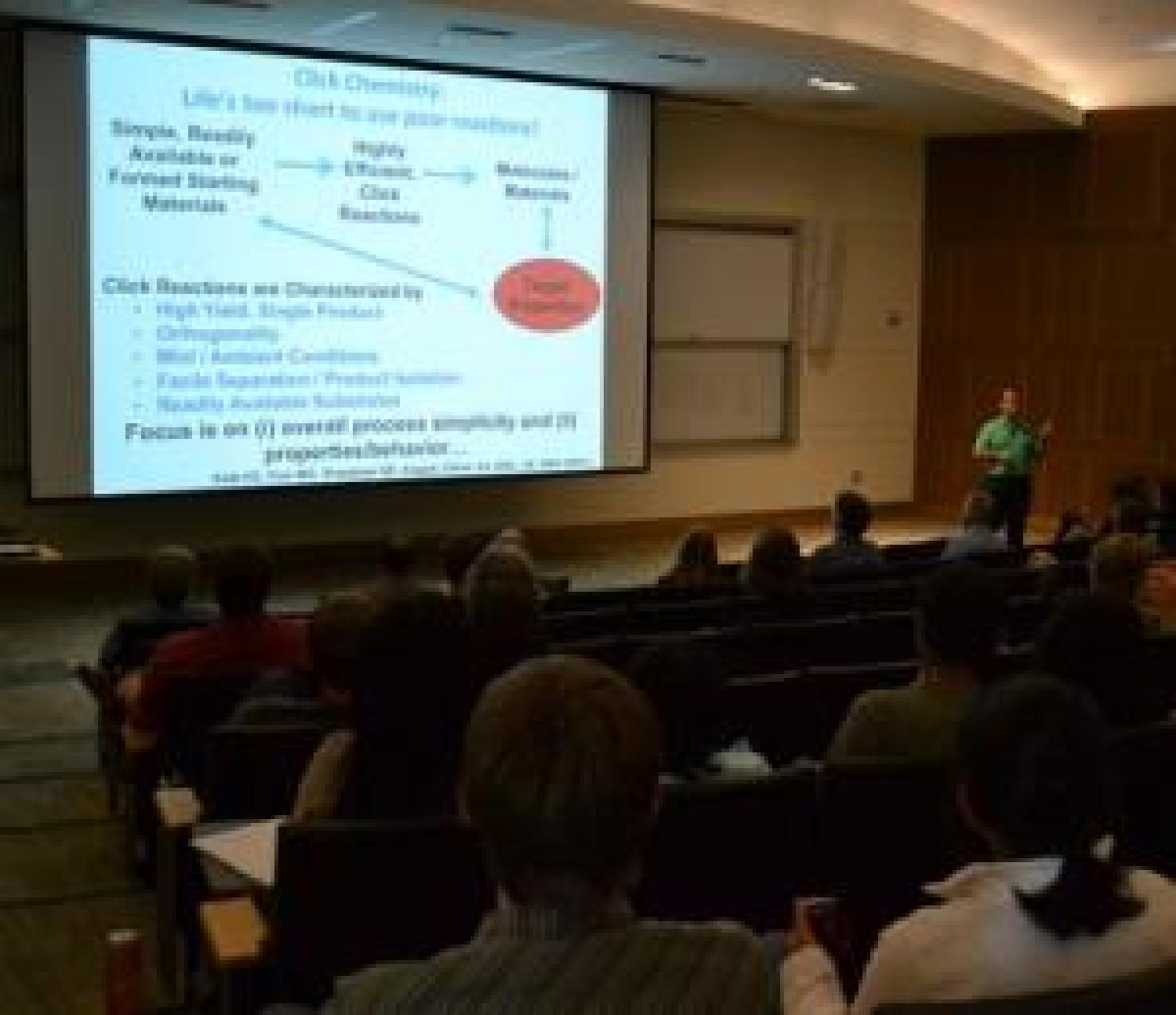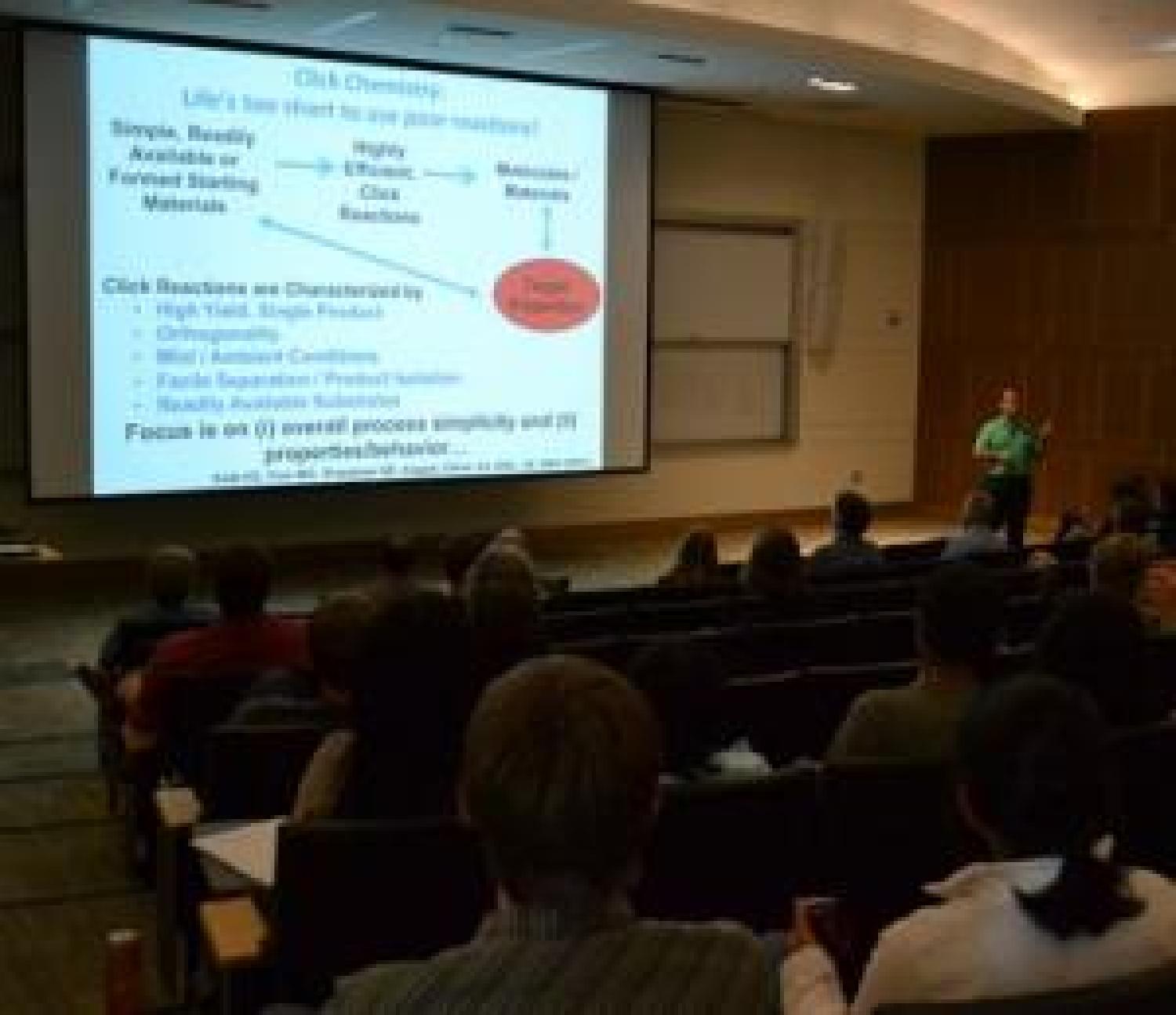Program Timeline

STEP 1
Lab Rotations
All first‐year IQ Biology students will participate in three, 10‐week research rotations. Students must choose three different labs in at least two different departments/disciplines to gain laboratory, experimental, and computational skills. Research rotations should fit with your research interests but challenge you to learn new techniques and introduce you to ideas outside of your primary discipline. For both semesters of the first year, students conducting research rotations sign up for three credits of CHEM 6901‐898 per semester for a grade.
In addition to the IQ Biology participating faculty listed on our website, it is possible to rotate in the labs of any of the faculty from our participating departments by arrangement (which IQ Biology staff will help facilitate).

STEP 2
Core Coursework
Three interdisciplinary “core” courses have been developed to provide IQ Biology students with a deeper knowledge of mathematical and computational approaches to solving bioscience and bioengineering problems. These core courses serve as the foundation of the IQ Biology curriculum and are taken together by all first-year IQ Biology students. These are project-based courses that tackle several biologically motivated problems, using multiple quantitative platforms while working in interdisciplinary teams:
- Quantitative Optical Imaging Lecture and Recitation (4 credit hours)
- Bioinformatics and Genomics OR Mathematical and Computational Biology (3 credit hours)
- Cells, Molecules and Tissues, a Biophysical Approach OR Biophysics (3 credit hours)
These courses are augmented by two elective "gap-filling" courses that allow students to learn more in relevant areas to which they have been minimally exposed.
In addition to these courses, students will take in the fall and spring semesters a 3 credit IQ Biology Research Rotation (for a total of 6 research rotation credits) advised by BioFrontiers faculty Hubert Yin.
STEP 3
Year 3
Thesis Research
Idea Exchange
Internship
STEP 4
Year 4
Thesis Research
Idea Exchange
Symposium
Teaching
STEP 5
Year 5
Thesis Research
Thesis Preparation and Defense
Idea Exchange
Teaching
STEP 6
Choose a Degree
IQ Biology partners with a number of degree-granting programs of study and departments on campus to give students the opportunity to interact and learn from experts in a broad number of disciplines. This provides students with maximal flexibility to explore their scientific interests.
Currently, we formally partner with the following programs of study/departments, from which IQ Biology students can get a PhD
STEP 7
Propose a Thesis
STEP 8
Graduate
IQ Biology Graduates recieve a Doctorate of Philosophy in their chosen degree as well as a certificate in Interdisciplinary Quantitative Biology from the BioFrontiers Institute.
STEP 9
Idea Exhange
Idea Exchanges are an opportunity for students and faculty to work on team projects, talk about research topics and ideas, hold workshops, and learn about new discoveries in quantitative biology. The agenda and format will vary from week to week. All first year IQ Biology students are asked to attend sessions held once per week in room B224 of the Jennie Smoly Caruthers Biotechnology Building (JSCBB). The dates and times will be determined based on your schedule each semester.

STEP 10
Student Symposium
Third-year and fourth-year students will organize an IQ Biology symposium every other year to present the research advances of IQ Biology participants. The research should be presented in a jargon-free format accessible to scholars from multiple disciplines, as well as the public. Research will be evaluated and awards given out by participating faculty members and members of the IQ Biology Advisory Board. Since professionals and researchers in government labs and industry will attend the symposium, it will also function as a networking event for those students interested in internships and careers outside academia.

STEP 11
Student Symposium
Third-year and fourth-year students will organize an IQ Biology symposium every other year to present the research advances of IQ Biology participants. The research should be presented in a jargon-free format accessible to scholars from multiple disciplines, as well as the public. Research will be evaluated and awards given out by participating faculty members and members of the IQ Biology Advisory Board. Since professionals and researchers in government labs and industry will attend the symposium, it will also function as a networking event for those students interested in internships and careers outside academia.
STEP 12
Internship
Internships are an important opportunity to build your base of experience and professional network. From research internships in biotech companies or national labs to business internships in marketing or business development departments, to curriculum development for those who would like to teach, IQ Biology offers many ways to customize your experience.
For example, Cochlear Americas, a local biotech company that produces hearing devices for the completely deaf, offers IQ Biology students internship opportunities in Research & Development, as well as cross-training in Marketing or Business Development departments. For students interested in industry, these internships will provide you with a rich experience in the business and entrepreneurial side of biotech.
Over seventeen companies have expressed an interest in receiving internship applications from IQ Biology students, and we can help you apply to many others.
- Alpine Immune Sciences (Acquired NivalisTherapeutics, formerly N30 Pharmaceuticals)
- ARCA Biopharma
- Array Biopharma
- Beacon Biotechnology
- Biodesix
- BiOptix, LLC
- BioPharm Guy
- Cochlear Americas
- Global Viral
- GlobeImmune, Inc.
- Medtronic Navigation
- METABIOTA
- miRagen Therapeutics
- Mosaic Bioscience
- SomaLogic
- Takeda Pharmaceuticals (formerly Inviragen, Inc.)
- The Lab Rat
- Terumo BCT (Acquired Caridian BCT. Inc.)


